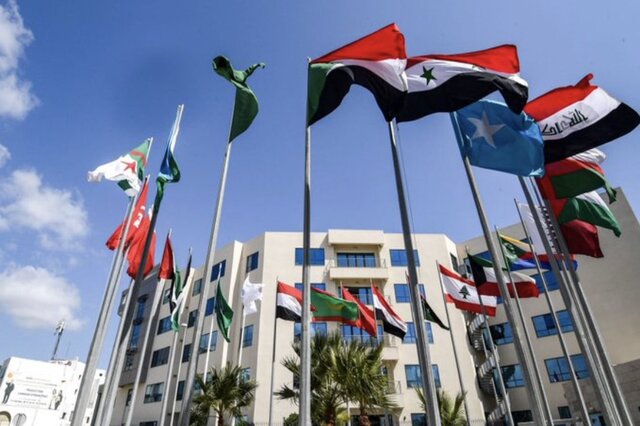Algiers – Arab leaders on Wednesday vowed their “total support” for the Palestinian cause, as veteran Israeli hawk Benjamin Netanyahu inched closer to a return to power.
The declaration came in the final statement of the first Arab League summit since the United Arab Emirates normalised ties with the Jewish state in 2020, sparking a string of similar moves that have divided the region.
Palestinian president Mahmud Abbas had called for more support from the 22-state bloc in the face of “crimes” by Israel, which he accused of “systematically destroying the two-state solution and throwing away agreements it has signed”.
In a speech to the summit in Algeria, Abbas made no reference to the Israeli election on Tuesday, but urged Arab leaders to “save the Al-Aqsa Mosque and the Church of the Holy Sepulchre before they’re Judaised”, referring to sensitive religious sites in the Israeli-annexed Old City of Jerusalem.
Palestine’s President Mahmud Abbas urges Arab leaders to support Palestinians in the face of “crimes” by Israelhttps://t.co/sSQhsRC6sq
— TRT World (@trtworld) November 2, 2022
Member states affirmed in the summit’s final declaration the “centrality of the Palestinian cause and our absolute support for the Palestinian people’s inalienable rights” including to an independent state with east Jerusalem as its capital.
Israel seized east Jerusalem and the Old City in the Six-Day War of 1967 and later annexed it, in a move not recognised by most of the international community.
The statement made no mention of the US-mediated Arab normalisation deals with Israel, but said the Israeli-Palestinian conflict should be resolved “on the basis of land for peace”.
It also voiced support for the 2002 Arab Peace Initiative that calls for Israel’s withdrawal from land it occupied in 1967 including the West Bank.
‘Concrete actions’ not statements
The Arab League has for decades been a forum for strident statements of solidarity with the Palestinians, but has had little real impact in its 77 years of existence.
Leaders addressing Wednesday’s session took turns in declaring support for a Palestinian state, and the final statement backed moves to make the state of Palestine a full member of the United Nations.
Abbas avoided directly mentioning the Israeli election that, according to initial results, looks set to deliver a comeback by former premier Netanyahu, who has long dropped any support for a two-state solution.
Netanyahu’s possible return comes almost two years after a normalisation accord with the UAE mediated by the administration of former US president Donald Trump.
ALSO READ | Algeria president urges Arab unity to confront ‘tensions and crises’
It was quickly followed by another with Bahrain, a provisional deal with Sudan and a re-launch of ties with Morocco, helping rekindle the kingdom’s decades-old rivalry with neighbouring Algeria.
Arab League chief Ahmed Aboul Gheit said Israel would be committing “a grave error” if it stands in the way of a two-state solution, as Palestinians and Arab citizens of Israel already form a majority in the territory Israel controls.
But an editorial in the Palestinian Al-Quds newspaper said Palestinians “don’t need any more statements, of which we’ve heard many, but concrete actions on the ground”.
It also called for the summit to take a stand “against Arab countries’ normalisation deals with the occupier (Israel) which totally ignore our cause”.
Libya, Syria, oil
The summit also touched on conflicts across the region.
It expressed “support for efforts to end the Libyan crisis through an inter-Libyan solution” and “a joint effort” by Arab states to end fighting in Syria.
In a nod to Saudi Arabia, it expressed its backing for oil producers after the Saudi-led OPEC cartel and allied producers headed by Russia angered Washington by slashing production by two million barrels a day from November, further pushing up already elevated crude prices.
The statement said the “balanced” policy would help stabilise markets and “help the interests of both producer and consumer nations”.
Saudi Crown Prince Mohammed bin Salman, however, was the summit’s most notable absentee, staying away with a reported ear infection.
King Mohammed VI of Morocco, Algeria’s main rival, also stayed away.
Foreign Minister Nasser Bourita told AFP that Algeria had sent “no confirmation via the appropriate channels” when Moroccan diplomats in Algiers asked how the monarch would be hosted, but that the king had invited Tebboune for a “dialogue” in Rabat.
Follow African Insider on Facebook, Twitter and Instagram
Source: AFP
Picture: Twitter/@MariamEljasmy
For more African news, visit Africaninsider.com


